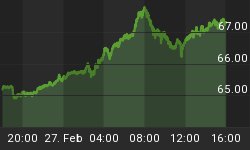For 2021, if you want to make real money on your investments, make sure China features heavily in your portfolio.
That’s what strategist Paul Colwell, head of Willis Towers Watson’s advisory portfolio group, recent.ly told CNBC’s “Squawk Box Asia”.
The trade war between the US and China, coupled with a very poorly defined global race for technological domination, has made the last four years bitter ones for world leaders and economic powerhouses.
Some of that tension could be relieved now, with Joe Biden assuming the presidency in January and with a COVID-19 vaccine within sight, investors preparing for what some view as a new world order.
While global investors currently have about 5% of their portfolios in China shares, Colwell says that’s not nearly enough: They should increase their China shares to 20% over the next decade.
“For investors to properly position their portfolios for the post-Covid world ahead, in the new world order, they need to have more of their investment portfolios allocated into China. Geopolitical diversification is going to be a much more important portfolio … consideration in the years ahead,” Colwell said.
In comparison to other global stock indexes, Chinese stocks have been performing well, with the Dow Jones Shanghai Index rallying over 15% year to date.
So, why have global investors only put 5% into China stocks? Partly because of political uncertainty stemming from the Trump administration, which has made it difficult for American investors to navigate.
In fact, one week after the US presidential elections, Trump signed an executive order barring Americans from investing in a total of 31 Chinese companies that the White House says support the country’s military. Those include Huaweii, China Telecom and China Mobile and others, with some of them trading on the NYSE.
This has had a far greater effect on investment portfolios than China’s own targeting of its fintech giants, such as Ant Group, which the Communist Party has lost control of and is now desperately attempting to put the leash back on without too much destruction.
When Chinese regulators scuttled Ant Group’s planned IPO in early November, with last-minute draft microlending rules that would have rendered the fintech giant non-compliant, investors were initially concerned, and the market responded with shock, but there wasn’t a massive pullout.
And immediately prior to this, there had been a surge in investor interest in Chinese stocks that was perceived as China’s return to financial expansion in a post-COVID setting.
Now, both COVID and Trump seem to be nearing the resolution end-game. But Beijing isn’t done with its regulatory moves, especially on tech and fintech, yet. Nor is Trump finished.
Since Donald Trump took office, the world's two largest economies have been locked in a bitter trade battle with him accusing China of unfair trading practices and intellectual property theft.
The dispute has seen the U.S. and China impose tit-for-tat tariffs on hundreds of billions of dollars worth of goods.
Just last week, Trump said the U.S. would slap tariffs on Chinese twist ties, which are commonly used to seal bread bags and tie up cables. The value of imported twist ties amounted to an estimated $4.15 million in 2019.
Over the past few months, the Trump administration increasingly targeted Chinese technology giants, mostly phone maker Huaweii and popular video-sharing app Tik-Tok.
But while Washington was busy cutting ties, Beijing has been rather successful in revising trade agreements and resolving disputes with other countries, namely Australia and India included.
And the general consensus among high-profile analysts seems to be that there’s a lot of money about to be made in China, despite Beijing’s regulatory crackdown. In a post-COVID world, without Trump in the American trade drivers seat, it’s probably time to up the ante for a more diverse global portfolio that recognizes the Chinese revival.
By Michael Kern for Safehaven.com
More Top Reads From Safehaven.com:
















